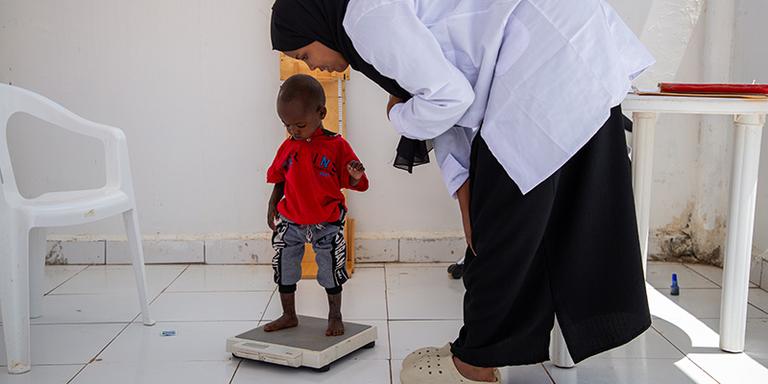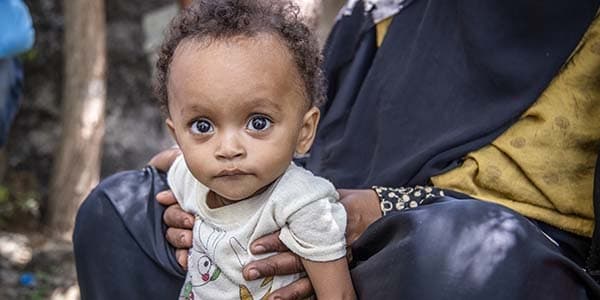Our child health programs focus on empowering frontline health workers to deliver preventative and curative care to address three of the major killers of children under 5: pneumonia, diarrhea and malaria. Trained and supported frontline health workers in the most-in-need communities and countries can often deliver lifesaving care such as immunizations, antibiotics, oral rehydration solution, zinc and malaria drugs, ultimately increasing access to and the quality of child health services. Frontline health workers enable families, communities and governments to be active partners in improving the health and survival of children.
Learn more about our legacy in community health��here.
Immunization
Our mission is to ensure equitable access to life-saving immunization so that no one, child or adult, is left behind. We work to reduce morbidity and mortality in children under 5 from vaccine preventable diseases by improving routine immunization coverage and by supporting the rollout of vaccines, sustainably and at scale, particularly in populations with the most under- or unimmunized children. We improve immunization service delivery by supporting facility and outreach services, increasing demand for immunization by mobilizing communities, training health workers, and supplying essential vaccine supply chain equipment, such as refrigerators and cold boxes.��
Integrated Community Case Management (iCCM)
iCCM is a broadly endorsed global strategy to reduce child mortality, in which a health system trains, supplies and supervises community health workers (CHWs) to manage sick children who have limited access to facility-based health services. iCCM is “integrated” because it addresses multiple, potentially life-threatening syndromes. Through iCCM, CHWs can deliver appropriate, lifesaving treatments closer to where children live. By combining preventive and curative measures, each complementing the other, iCCM achieves better results for children.��We have supported iCCM efforts in 23 countries, with our largest program currently in Cote d’Ivoire.
Malaria Control
In countries where malaria is endemic, we are scaling up proven, evidence-based interventions, which significantly contribute to prevention, diagnosis, and treatment. These interventions include improved case management at facility and community levels, including the use of rapid diagnostic tests and combination drugs; the distribution of long-lasting insecticide treated bed nets; intermittent preventive treatment of malaria in pregnancy; seasonal malaria chemoprevention for children (presumptive treatment in monthly intervals); and indoor spraying, among others.
Digital Health
We apply and support the design and implementation of digital health (appropriate, health-related mobile technologies) to increase the quality and use of high-impact practices at scale for improved maternal, newborn, child and adolescent health and survival. Our focus is on phone and tablet applications to improve health worker performance and on messaging to improve links between community members and health facilities.
Child Health in Humanitarian Settings
During times of crisis, access to quality health services becomes increasingly limited or non-existent. In the initial phase of an emergency, we collaborate with health systems and other partners to support existing health centers and village clinics, and establish mobile medical care and temporary health facilities to reach displaced or underserved populations. We developed a review of which found that iCCM services can continue during a natural disaster, albeit with disruptions. Our interventions in humanitarian settings include management of childhood illnesses and preventive interventions such as vaccinations and health/hygiene promotion.��
��
Africa
Asia
Middle East and North Africa
North America, Latin America and the Caribbean

Abdi*, 17 months, standing on a weighing scale in a malnutrition center in Somaliland




